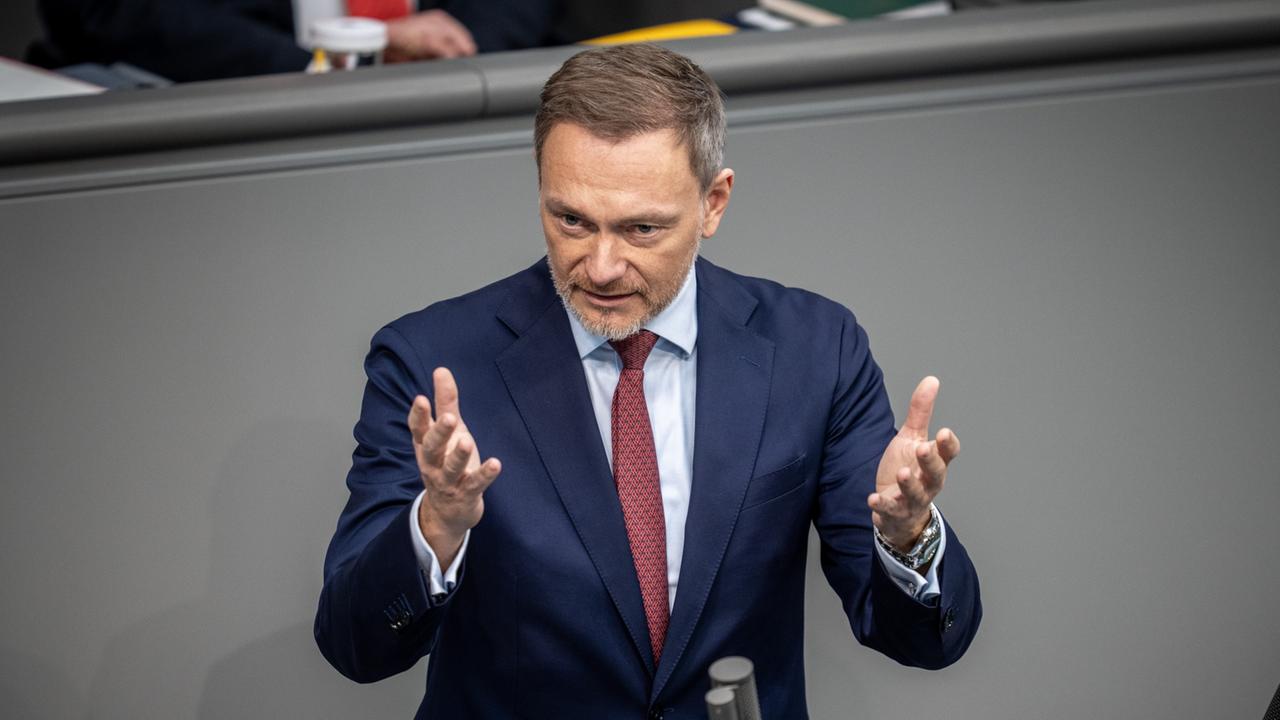The Greens and the FDP agree that companies should be relieved. But Finance Minister Lindner's proposal to abolish the solidarity surcharge for companies was met with rejection at the traffic lights.
SPD leader Saskia Esken has rejected Federal Finance Minister Christian Lindner's proposal to abolish the solidarity surcharge for companies: She is of the opinion that the “30 billion that would then be missing there, that we cannot finance it anywhere in the budget,” said Esken. “In this respect, I don't see the suitability of this proposal.”
A spokesman for the Ministry of Finance explained that the total revenue from the solidarity surcharge was not 30 billion euros, but a good twelve billion euros. “The political debate should be based on solid evidence,” he added.
Lindner announced the cancellation of the solidarity surcharge for companies on Sunday Report from Berlin brought into the debate about improving the competitiveness of German companies. If you really want to change something about taxes, then this would be the easiest and fastest way, said the FDP politician. This would also have the advantage that states and municipalities would not be burdened. But you then have to talk to each other about counter-financing.
Resistance from the Greens
Green Party leader Ricarda Lang also rejected the proposal. Abolishing the solidarity surcharge would not provide the necessary private and public investment, she said. Her party colleague Robert Habeck made a “concrete proposal” with the special fund as to how this could be achieved.
Lindner received support from the ranks of his own party. FDP General Secretary Bijan Djir-Sarai called the proposal “sensible”. “That would also be something that would not be a burden on the states, but rather something that the federal government alone would ultimately have to regulate,” said Djir-Sarai to the broadcasters RTL and ntv. Djir-Sarai rejected Habeck's suggestion of a special fund: “These are debts. We don't think much of that.”
Chancellor Olaf Scholz did not initially take a position. Government spokesman Steffen Hebestreit said he was “taking careful note of the current political statements”. Of course, a competitive economy is the Chancellor's goal.
CDU for realignment Economic policy
CDU General Secretary Carsten Linnemann, however, called for a comprehensive realignment of economic and financial policy. “A corporate tax reform alone doesn’t achieve anything,” said Linnemann in the morning magazine ARD and ZDF. What is needed is an “Agenda 2030”, a “state reform” and a “change in mentality”.
The economic policy spokesman for the AfD parliamentary group, Leif-Erik Holm, called tax relief for companies “urgently necessary”. However, these should not be financed on credit through “new debts disguised as special assets,” Holm told the broadcaster “Welt TV”.
IW speaks of “disguised corporate tax”
Since a tax reform in 2021, only companies and those earning higher incomes above an allowance have paid the solidarity surcharge. According to calculations by the employer-related Institute of the German Economy (IW), the state will receive twelve billion euros from the solidarity surcharge this year. Seven billion of these are paid by companies. “The abolition of the remaining solidarity is overdue,” emphasized IW President Michael Hüther. “It's basically a corporate tax in disguise.”
Hans-Joachim Vieweger, ARD Berlin, tagesschau, February 5th, 2024 7:13 p.m



